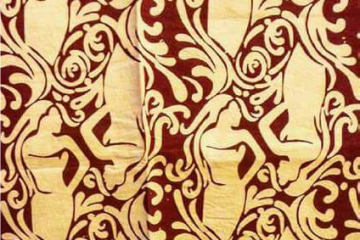Toponimi is a sciential language of the origin, meaning, function, and typology that relate to a name of place. Some of area in Indonesia has name that showing the identity of those places. Here they are.
Klewer Market, Solo
Klewer Market is one of the icon of Solo, Central Java. This market is a center textile and Batik. The existence of Klewer Market is not only about Solo people, but also international target market. Otherwise, this market often called as National Textile Project Market.
Toponimically, Klewer word came from Javanese language, Kleweran or hanging. The traders usually hanged their load on shoulder while selling their stuffs. They hanged the stuffs so the buyer could see the stuffs clearly.
The history of Klewer Market began on Japan colonialism. The downturn economic condition of local people on that era force them to work, even as textile merchants. Klewer Market used to locate in Stabelan, on the East side of Legi Market, Banjarsari. However, after Pes disease, the market had moved to around Agung Mosque or in North Plaza of Keraton Kasunanan. This new location is close to Slompretan Market, the central market of bird. In the end, the Slompretan Market changed its name and function into Klewer Market.
Pondok Cina (Chinese Lodge)
Pondok Cina (Chinese Lodge) is located between Depok, West Java and South Jakarta. Administratively, Pondok Cina is on Beji, Depok. This area used to use as a temporary house of Chinese people whom managing the agricultural land of Cornelis Chastelein, a Netherlander, on 18th Century. He asked to the government to not give a permission for the Chinese live around Depok. Nevertheless, the far distance of Depok and Batavia made the Chinese have to stay in a temporary lodge. Then came up the Pondok Cina. Nowadays, Pondok Cina is very well known as a name of train station near Universitas Indonesia.
Angke
Angke is also known as one of populous area in Tambora, West Jakarta. The toponimi of Angke is very close to the mass murder tragedy on the era government Governor General Adrian Valckenier. Based on the name, Angke came from Chinese language, Ang means blood and Ke means carrion. This name relate to the mass murder tragedy of Chinese people that murdered by the Netherlands where the corpse were floating in Angke River. This place used to name as Bebek Village, but it’s changed everything after the mass murder in 1740 where the Batavians called the area as Angke.


0 Comments